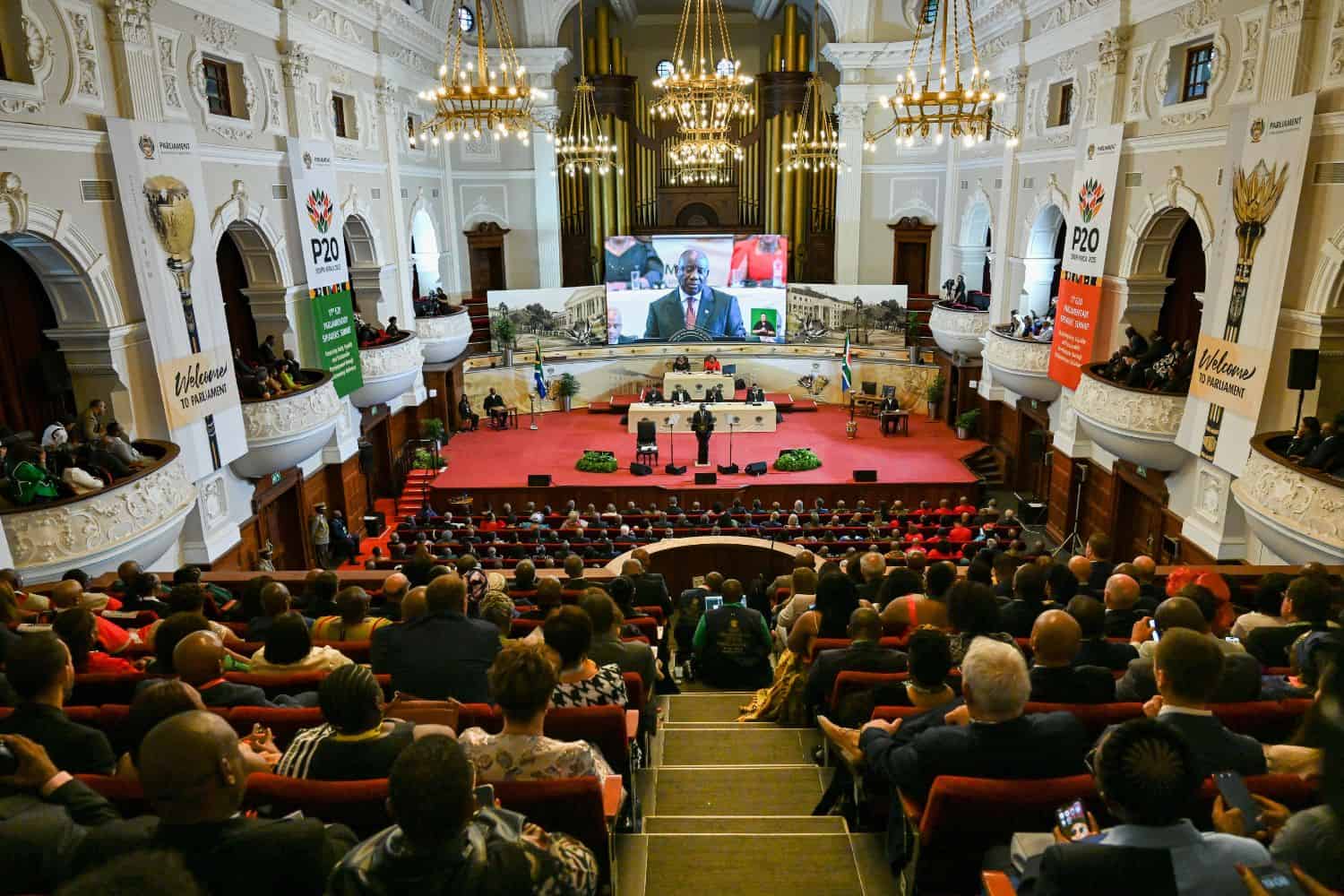The Appropriation Bill goes through three main stages in the National Assembly.

The National Assembly has accepted the Appropriation Bill on the first reading, moving a step closer toward concluding a tumultuous budget process – although it is not yet fully resolved.
MPs convened at the Cape Town International Convention Centre (CTICC) on Wednesday to debate and vote on the Appropriation Bill.
This bill, which allocates funding to national government departments and outlines how it will be divided among institutions for the financial year, is the final major legislative step before the R1.2 trillion national budget can be finalised.
Stages of Appropriation Bill in the National Assembly
The Appropriation Bill goes through three main stages in the National Assembly.
In the first reading, MPs debate whether they agree with the overall principles of the bill.
If the National Assembly rejects it at this point, the bill is dismissed entirely and does not advance.
ALSO READ: Ramaphosa defends budget as critical to government oversight
The second stage involves voting on the budgets allocated to each government department and its respective entities.
Lastly, if all departmental votes are approved, Parliament then considers the full schedule, which outlines the complete breakdown of funding allocations.
Once this schedule is adopted, the bill moves to the second reading – the final vote needed for the National Assembly to formally pass it.
Debate on Appropriation Bill
Before the first reading debate could begin on Wednesday, the National Assembly adopted the Standing Committee on Appropriations’ report on the bill.
Kicking off the debate, Mmusi Maimane, chairperson of the Standing Committee on Appropriations, called on the executive and the government of national unity (GNU) to establish clear priorities and reach consensus on the spending plan early.
The Build One South Africa (Bosa) leader emphasised that doing so would help avoid the disruptions seen in this year’s budget process and ensure a smoother cycle going forward.
“We need to be clear about when we do spending reviews. In this medium term, we must be far more efficient in how we deal with the money that has been allocated to us,” Maimane said.
READ MORE: Treasury allocates R750m to offset Pepfar funding withdrawal as Motsoaledi tables health budget
Closing the debate, Deputy Finance Minister David Masondo stressed to MPs that passing the bill would authorise government to use the allocated funds to provide public services.
“This R1.2 trillion is not just a number; it represents school meals, hospital beds, social grants and infrastructure projects that will directly impact the lives of many South Africans,” he said.
He warned that failure to pass the bill could prevent government from accessing funds by October, thereby stalling new projects and service delivery.
After the debate, a manual voting process was held on the first reading.
A total of 262 MPs supported the Appropriations Bill, while 90 opposed it. No abstentions were recorded.
Watch the plenary session below:
Departmental budget votes
MPs are also voting on Wednesday on the budgets for each department. At least 201 MPs must be present, with a majority vote for approval.
All 42 departmental votes must be approved for the Appropriation Bill to pass.
The process remains on shaky ground, especially with the DA previously pledging not to support the Department of Human Settlements’ allocation, due to Minister Thembi Simelane’s alleged involvement in the VBS scandal.
READ MORE: ‘Police are the chief criminal syndicate’: Saps R120bn budget criticised by MPs
The party has called for her dismissal by President Cyril Ramaphosa.
Whether the DA, which holds 87 seats, will maintain that stance on Simelane is unclear.
The party’s support for the overall bill on Wednesday followed the recent dismissal of former Higher Education Minister Nobuhle Nkabane.
The departmental votes continue at the CTICC.
What happens if Appropriation Bill is not passed?
If the National Assembly fails to pass the Appropriation Bill, it must be returned to the Standing Committee on Appropriations for reconsideration.
This would have significant consequences.
Under the Public Finance Management Act (PFMA), departments are only allowed to spend up to 45% of the previous year’s allocation during the first four months of the new financial year – ending in July.
READ MORE: Parliament allocates R71m for medical aid for former MPs
After that, they may spend only 10% per month.
However, without a new budget, no new programmes or adjustments to existing allocations can proceed, potentially delaying funding for public services.
Next steps if passed
If passed by the National Assembly, the Appropriation Bill proceeds to the National Council of Provinces (NCOP) for concurrence.
The NCOP must adopt the bill by 31 July in accordance with the Money Bills Amendment Procedure and Related Matters Act, which requires Parliament to pass, amend, or reject the legislation within four months of the start of the financial year.
Once approved by the NCOP, the budget process is formally concluded, and the implementation of the national budget can begin.
Post-approval oversight
Once the bill is fully enacted, government departments will begin receiving funds and executing spending plans.
Parliamentary oversight will continue during implementation.
The Auditor-General will audit expenditure and report findings to Parliament.
Parliament is empowered to take corrective action should mismanagement or underspending be detected.
NOW READ: DFFE to stretch R9bn budget amid fiscal constraints, minister warns
Support Local Journalism
Add The Citizen as a Preferred Source on Google and follow us on Google News to see more of our trusted reporting in Google News and Top Stories.






